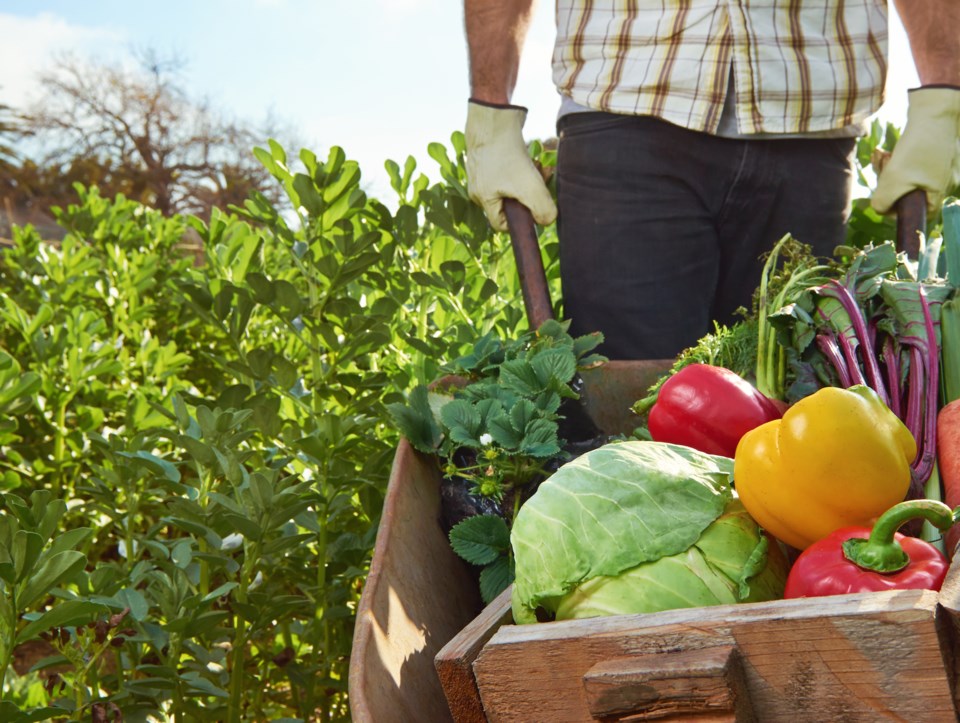NEWS RELEASE
CITY OF GUELPH
*************************
Today, the Guelph-Wellington Smart Cities initiative, in collaboration with 10C, announced the Guelph-Wellington Urban Agriculture Challenge (GWUAC). This program, led by Harve$t Impact—a social financing program of 10C and a core pillar of the Our Food Future—is calling for projects that will support circular economic recovery and accelerate food production, getting more food to the table with less environmental impact.
“We’ve certainly been challenged the last few months with COVID-19, but this is one challenge that will bring together innovation and collaborative thinking and be transformed into meaningful initiatives that will make this community stronger,” said Scott Stewart, Chief Administrative Officer, City of Guelph.
To be considered for a portion of the $102,000 available funding, submissions should answer this question: How might businesses, not-for-profits and individual community members use circular thinking and urban agricultural practices to improve community resilience by increasing production of (and access to) nutritious food in urban and/or rural settings in Guelph-Wellington?
“Imagine living in a community with visible food sources at street level, on rooftops, in shared gardens, on balconies, in urban greenhouses, and in forms we have not yet seen. Investing in urban agriculture can help reconnect our urban lives to food production,” highlights Julia Grady, executive director, 10C.
The categories in this challenge allow for a variety of submissions from large to small, and are open to entries from non-profit community or charitable organizations, Indigenous groups, for-profit businesses, co-operatives and social enterprises, and informal community groups, and from across the Guelph-Wellington community.
GWUAC is centred on community resilience and encourages and supports submissions from a diverse set of applicants including BIPOC, LGBTQ2+and under-represented people.
The three categories are:
-
Transformative Urban Agriculture:
$70,000 for one innovative, food growing project in an urban or town setting. -
Scaling Out Community Agriculture:
$20,000 for a food growing project that has the potential to grow community wide. -
Shovel and Fork Fund:
$2,000 each for six initiatives that support community food growing.
Applications for expression of interest for this challenge are now being accepted through to Oct. 30, 2020 and shortlisted projects will be announced by Nov. 16, 2020. After a phase 2 application process for 20 of the shortlisted projects, the Community Evaluation Committee will announce final selections by Jan. 31, 2021 for projects to start in the 2021 growing season.
For full entry details, deadlines and application process, visit kitchentable.foodfuture.ca.
The Kitchen Table
To follow this challenge and all the programs offered in Our Food Future, visit the newly launched The Kitchen Table, a community social network and shared digital collaboration space where residents, businesses and not-for-profits can share ideas and stories, complete surveys, ask questions and learn how to be part of this local movement. Join the conversation today.
About Grow Back Better
Grow Back Better: Our Food Future’s 10-point COVID-19 recovery plan is part of the City of Guelph’s and the County of Wellington’s overall COVID-19 economic and social recovery efforts. For information on the City and County response and recovery efforts, visit guelph.ca/covid19 and wellington.ca/en/covid-19.aspx.
About Our Food Future
Inspired by the planet’s natural cycles, a circular food economy reimagines and regenerates the systems that feed us, eliminating waste, sharing economic prosperity, and nourishing our communities. In Guelph-Wellington, we are working to build Canada’s first tech-enabled circular food economy that will achieve a 50 per cent increase in access to affordable nutritious food, 50 new circular economy businesses and collaborations, and a 50 per cent increase in circular economic revenue by recognizing the value of waste.
*************************
